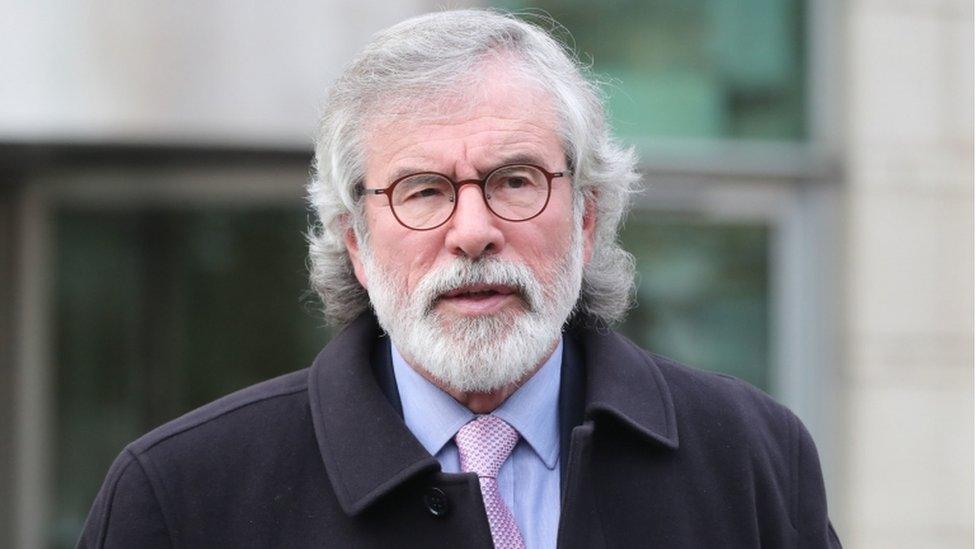Gerry Adams: Ex-Sinn Fûˋin leader appeals for compensation over quashed convictions
- Published

Gerry Adams has been wrongly denied compensation after his convictions for trying to escape from prison in the 1970s were quashed, the High Court has been told.
The former Sinn Fûˋin president won an appeal to have his two historic convictions overturned in 2020.
He is challenging a Department of Justice decision to refuse a pay-out.
Mr Adams' lawyers said the legal test for an award made to victims of a miscarriage of justice had been met.
In 2020, he won his appeal to have his two historic convictions overturned.
He had been found guilty of two attempts to escape from lawful custody while being held without trial at the Maze Prison - then known as Long Kesh internment camp - in 1973 and 1974.
He was later sentenced to a total of four-and-a-half years in jail.
However, the Supreme Court ruled that his detention had been unlawful and quashed both convictions.
The interim custody order (ICO) used to initially detain him was held to be invalid because the then-Northern Ireland secretary, Willie Whitelaw, had not personally authorised it.
Mr Adams issued judicial review proceedings after a subsequent application for compensation was turned down.
Under the statutory scheme, payment for a miscarriage of justice is made in cases where "a new or newly discovered fact" shows the person did not commit the offence.
'Not lawfully detained'
Mr Adams' lawyer argued that he qualified based on the circumstances established by the Supreme Court.
"There is in this case a newly discovered fact in the form of confirmation that there was no personal consideration by the secretary of state, and that (another) minister of state signed the ICO without authorisation to do so," he said.
"If the applicant was not lawfully detained, he did not commit the offence he was convicted of.
"The newly discovered fact led to the quashing of these convictions," he added.
However, a lawyer for the Department of Justice said it was the analysis of a legal point which led to the guilty verdicts being overturned.
"The convictions were not reversed on the grounds of a new or newly discovered fact," he said.
The judge reserved judgment but said he would make his decision as soon as possible.